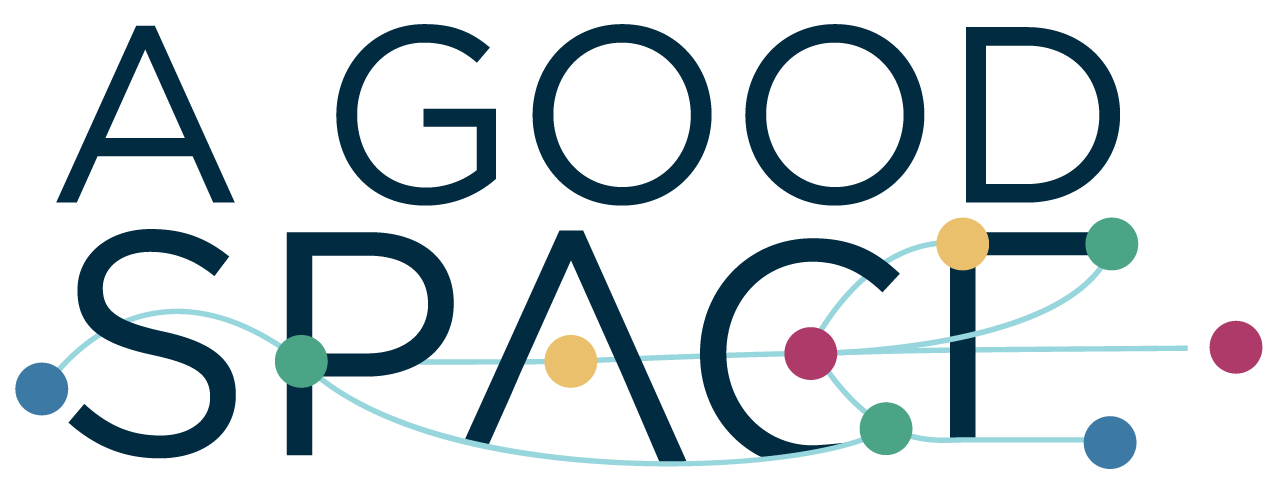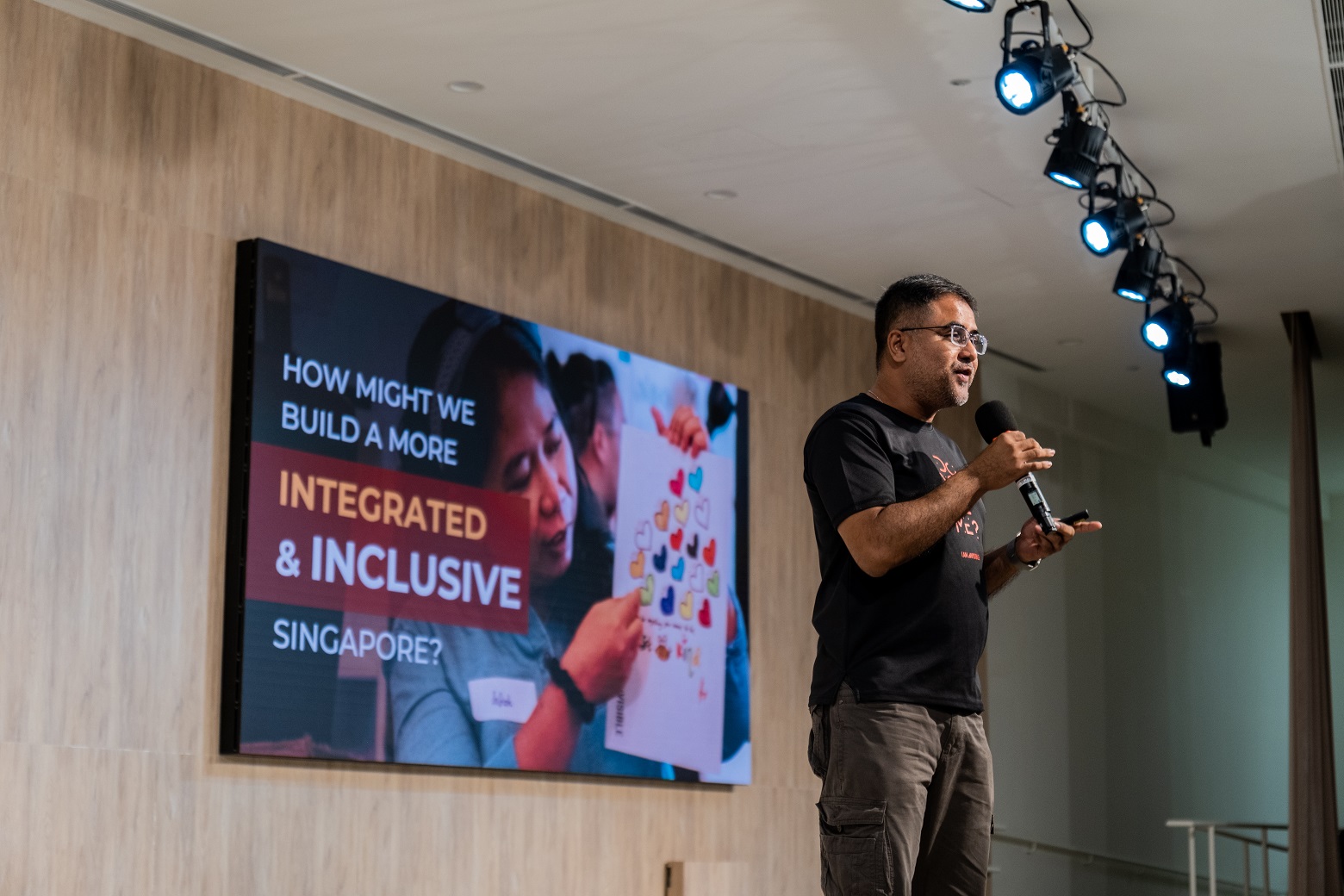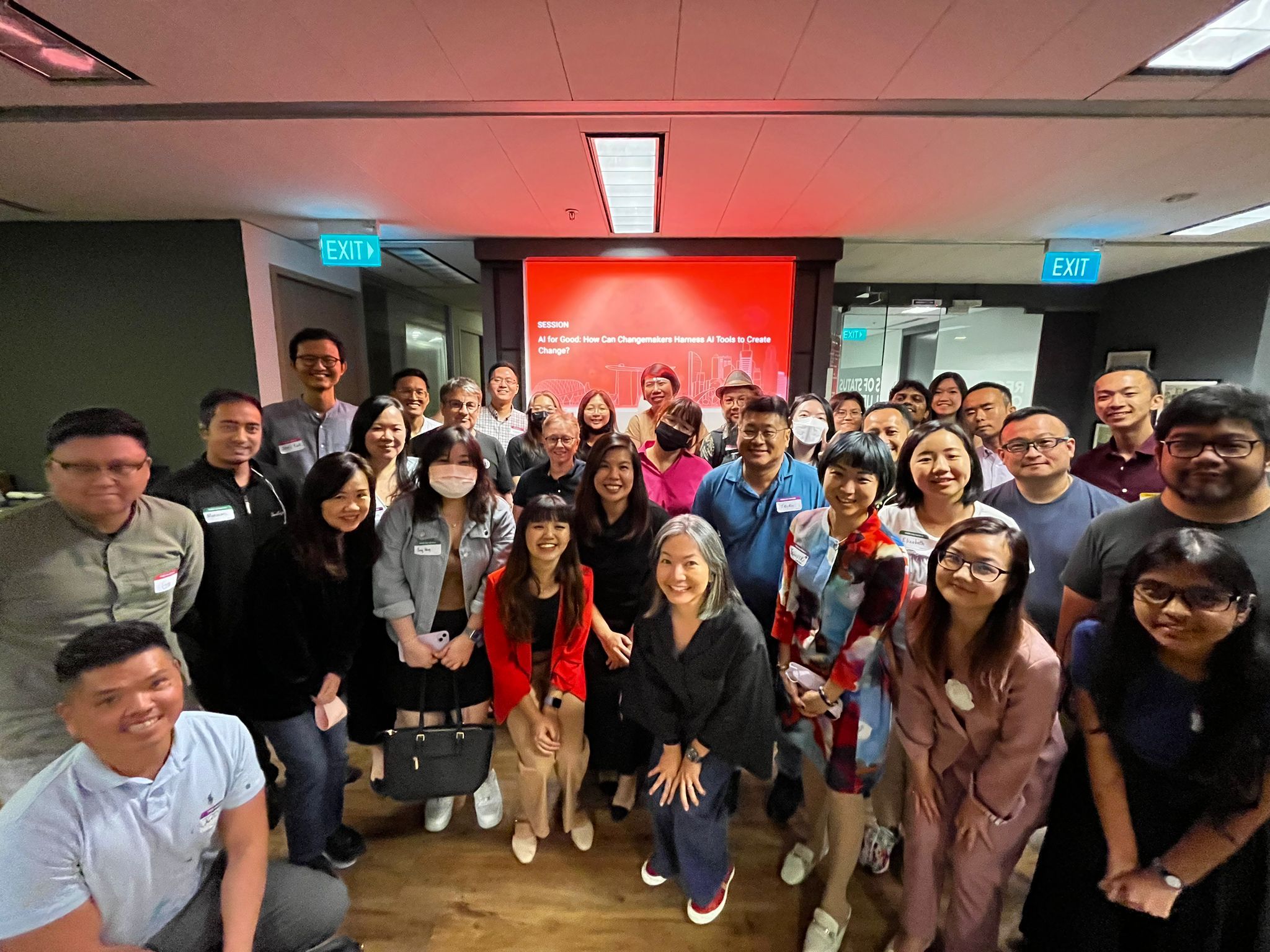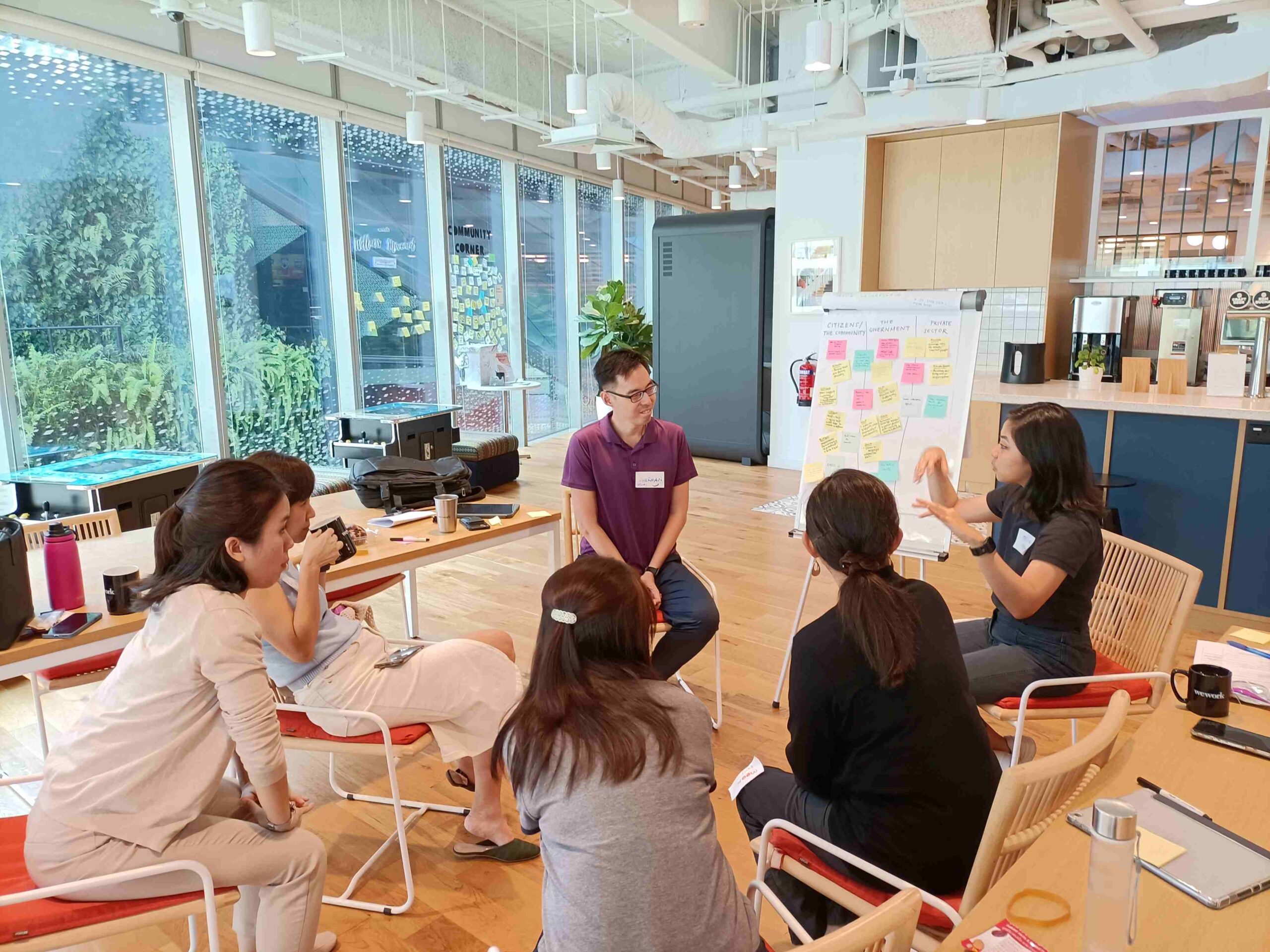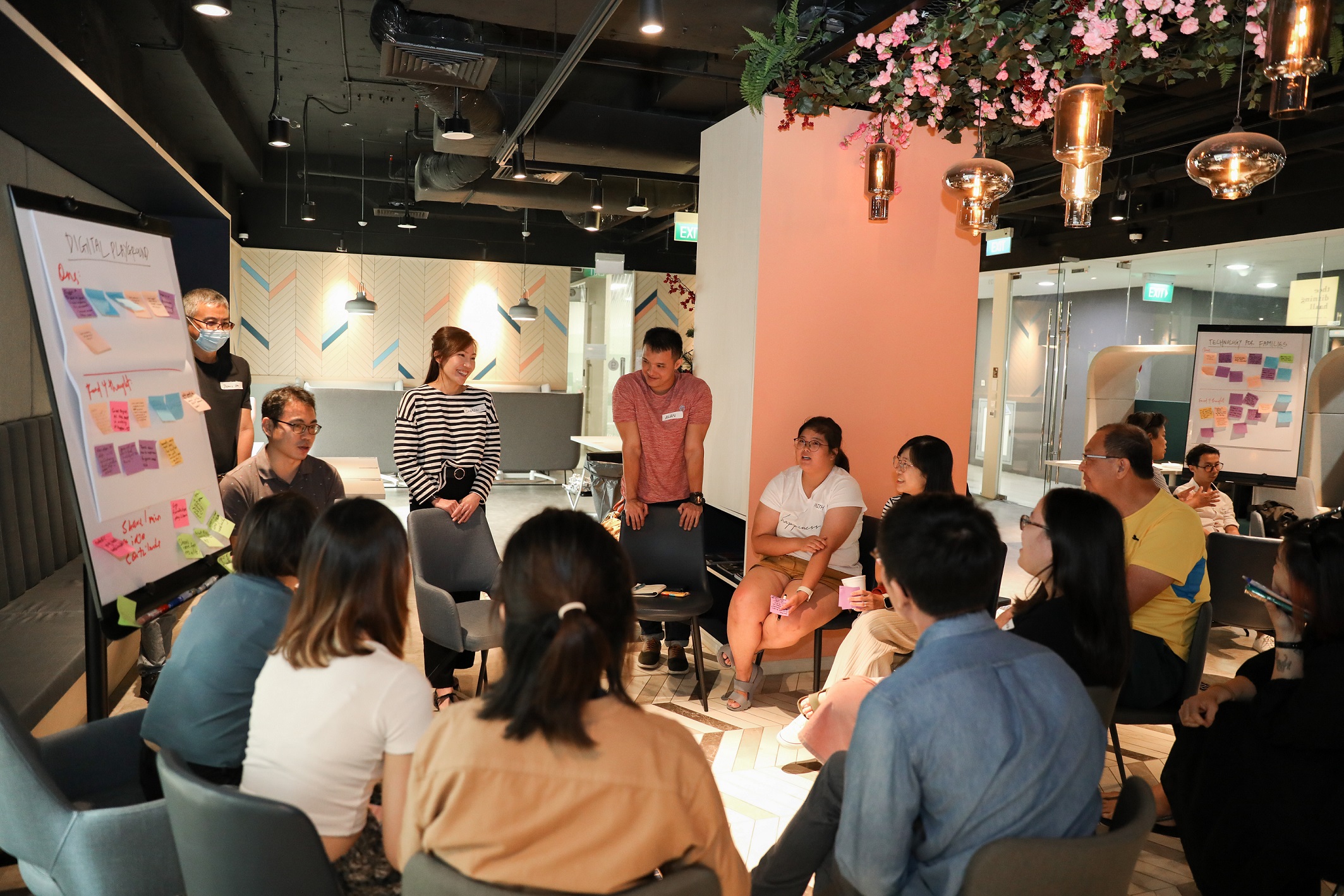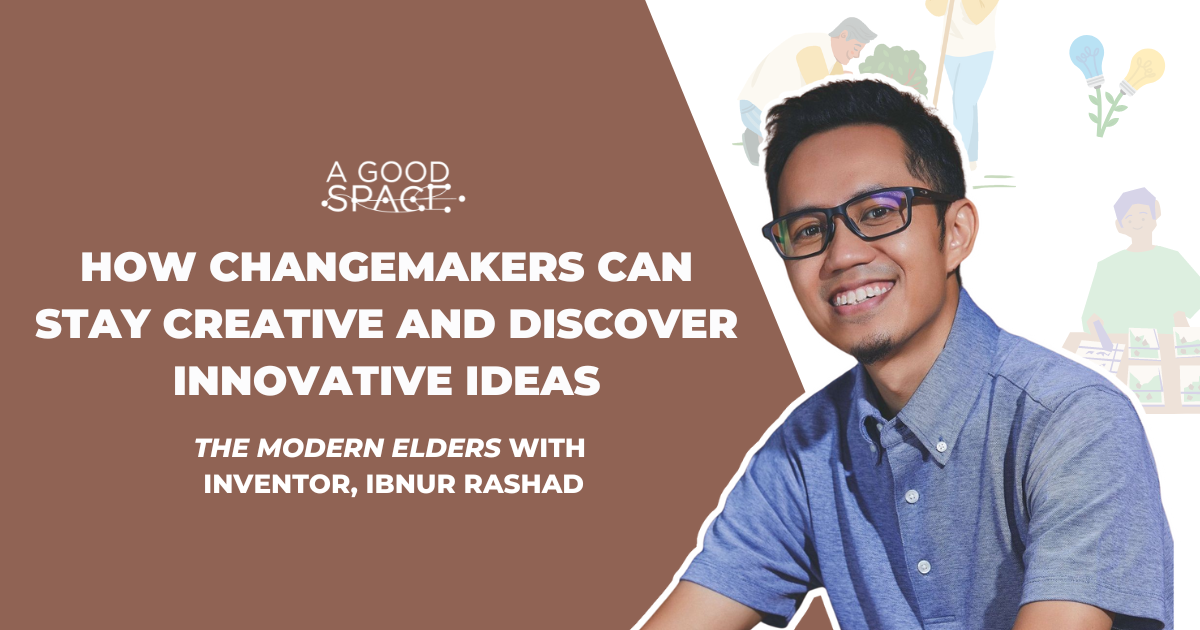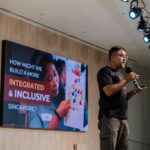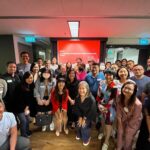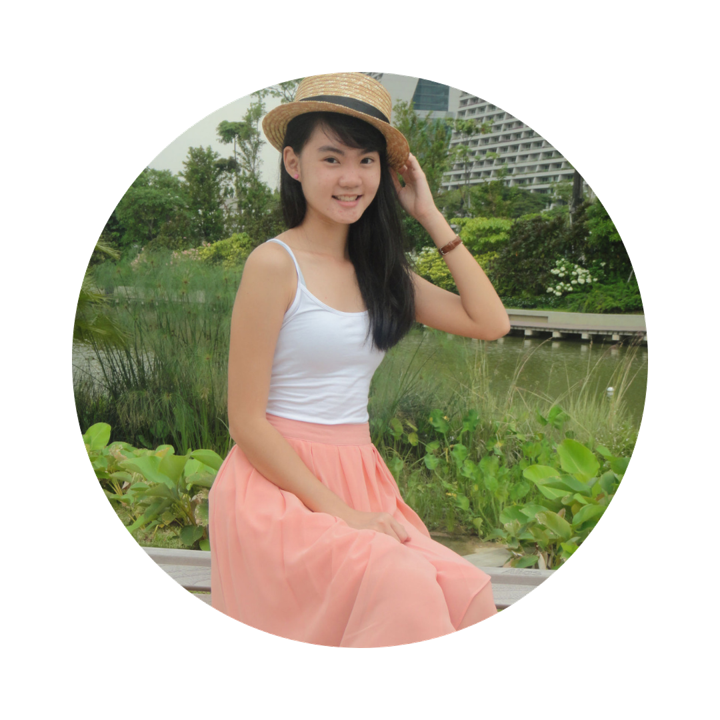A few weeks ago in early February, we hosted Tong Yee, a social entrepreneur and co-founder of The Thought Collective as part of our Be Inspired Speaker series at A Good Space, where we bring global and local experts together to share their views on various social issues through public lectures.
As a past attendee of his Social Emotional Learning workshop, I have a lot of respect Tong Yee (or Mr Tong to many of his students).
His authenticity in sharing his personal stories and his unique ability to help a layperson to understand complex social issues really struck a chord with me and so many others in Singapore.
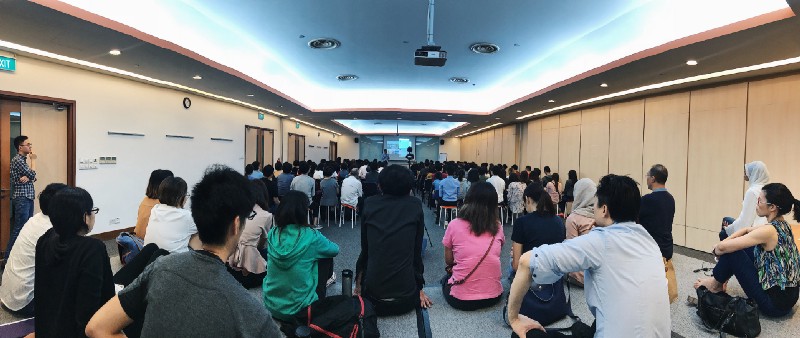
In this article, I hope to share 4 things that I took away from Tong Yee’s session but before that, here’s how this talk came about.
Be sure to read till the end to find out how you can watch the lecture for yourself!
The Context
Cities across the world are facing immense strain.
Be it widening generation gaps, unfettered social media, urban migration, refugee crises, or even cosmopolitan work environments, we have to contend with the increasingly diverse ways people view and engage with the world.
Gaining empathy with how different groups of people in Singapore see issues and learning to appreciate the energy they bring to any given issue is crucial in tackling these shared social issues.
How do we maintain a willingness for each of us to be in the same space as one another, to preserve trust despite our differences?
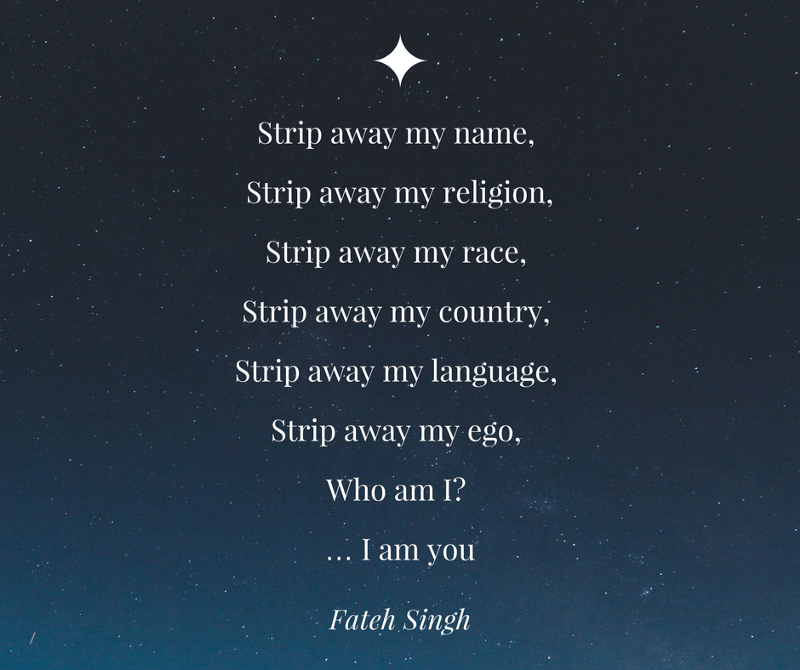
What is Trust?
Tong Yee started by recognising the complexity of trust and how it means different things to different people. He gave his understanding of trust as:
Trust is the willingness and ability to be in common space with each other
We create many labels in society: Migrant Worker, Feminist, Mainland Chinese, ITE Student, etc. These labels distance ourselves from our common humanity and interconnectedness to one another.
Violence or dis-trust occurs when we declare that the other person is different from us; that they are not us. We can either choose to enter into divisive space or common space at any point in time.
In the lecture, Tong Yee shared a personal story about his oldest daughter and her first pet Twinkie Toes, a guinea pig that she adopted a few years ago.
Twinkie Toes had recently became critically sick and passed away shortly after being hospitalised. As he drove home to inform his daughter, Tong Yee observed several stories playing in his mind.
He had already paid a $350 deposit for the medical bills and now his daughter had to suffer the pain of losing something for the first time in her life.
He felt a strong desire to guilt trip her into understanding that this death was costly, both emotionally and financially, and could have been avoided had she not adopted the guinea pig in the first place.
Stepping into his home, he suddenly felt a sense of clarity. “Is this about the guinea pig or is this about my relationship with my daughter? One thing will pass but the other won’t,” he reflected.
With that, he made a decision to enter into common space, instead of a divisive space, helping her to grieve and understand the emotions she was feeling.
“I watched the purity of a child engaging with sadness. She cried freely, safely and didn’t feel like there was something she had to hide,” he shared.
In entering any relationship, let us begin to ask ourselves:
Am I there to serve an interest or to serve a relationship?
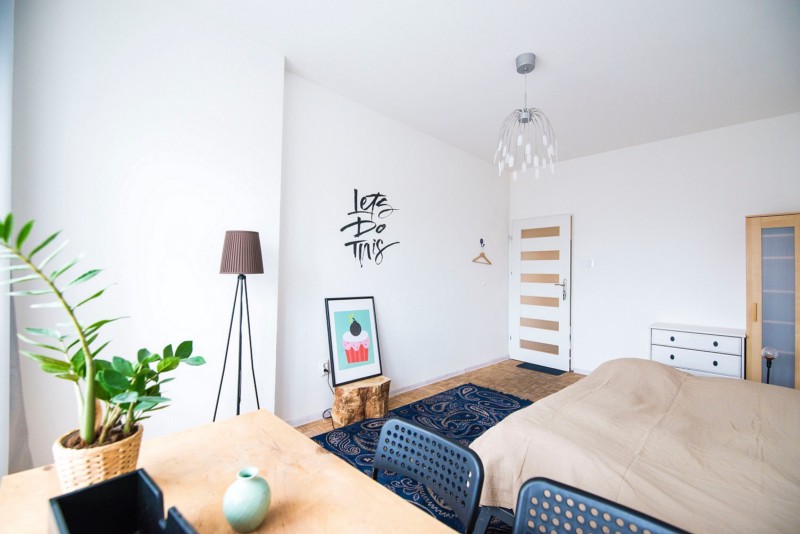
Sustainable Trust is Declining
With the movement towards a sharing economy where we are car-pooling with strangers (Uber), sleeping in their homes (Airbnb) or meeting them for dates (Tinder), it might be tempting to say that there is an increase in trust in our society.
Tong Yee, however, does not believe that to be the case.
To build a trusting relationship requires us to engage with the fullness of the other person’s identity, not just caring for their temporal needs or interests
He observed that most relationships in a sharing economy bring strangers together to serve each other’s temporal needs.
Citing the example of Airbnb, he raised the question: “When you enter an Airbnb, do you see your host as having a home or someone who is just providing you with a room?”
There seems to be a rise in finding short term mutual interest and a decline in long term common interest in Singapore. He shared a specific example he remembers.

One of his students had signed up for an online Sugar Daddy website and shared her experience of offering companionship as a sugar baby to older, wealthier men (sugar daddies).
She made S$1,500 in four meetings with different men and realised that if she had continued for just a few more months, she’d be able to pay for her four year education in University.
What alarmed him was that in the span of two short months, he received messages from four different girls from four different schools, all sharing similar stories.
A deeper investigation revealed that there were over 4,000 sugar baby accounts in Singapore, with more than 2,000 active accounts and most women being below 24 years old. Half of them came from Junior Colleges.
Tong Yee feels this trend is symptomatic of a trust relationship that is starting to break down between parents and their children. Many parents use money or validation as a strong leverage to get their children to do their bidding.
When parents look at one aspect of the child, instead of the fullness of a person, trust diminishes. “The sense is that you are not here to take care of me, but to take care of this need you have of me,” he said.
He went on to argue that the effectiveness of this leverage is decreasing. In each of the four cases, the girls had parents who threatened to take away money if they did not make life choices that their parents agreed with.
“Their choice to enter the sugar daddy site was a choice to gain freedom, not money, from their parents,” he shared. Thus, as parents, we have a choice:
Do I enter into a trust relationship where I consider the fullness of their identity or do I strong-arm them into doing my bidding?
Trust Begins with a Choice
Trust in its simplest form begins with choice — when we make a choice to hold the possibility of living new narratives that allow us to find common ground with another person.
With trust’s complex nature, how can we find common space? Where does it emerge? He recounted a story that happened many years ago when he was teaching at a Junior College.

He was teaching in a class that had 15 girls (who happened to be the most attractive girls in school) and two boys. There was one particular boy who stood out.
He’d always carry a heavy school bag stuffed with textbooks, together with two plastic bag full of notes that he’d never let go of, not even when the National Anthem was playing in the morning school assembly.
In class, the boy would always sit in the corner, never interacting with anyone and always silent. “Despite this, he was an excellent student, one of the best I’ve had,” recalled Tong Yee.
One day, the boy approached Tong Yee after class, requesting to speak privately.
“Mr Tong, I have a very big problem. I fantasize about the girls in class everyday and I masturbate thinking about them everyday. I’m really scared that I will touch them and if I let go of these plastic bags, I don’t know what I’ll do. I can’t keep this secret anymore, can you please help me?”
Tong Yee agreed to help, and proceeded to meet with the boy regularly, helping him to understand what he was going through. Two months later during a normal lesson in class, the boy raised his hand, something that he had never done before.
Standing up to speak, he said to the entire class: “I masturbate to all of you every day.” Then, something magical happened.
Amidst the stunned silence in class, one girl stood up, looked at the boy and said: “It’s okay, all the boys masturbate about us but at least you dare to admit it.”
She took his hand, led him to the front of the class and found a chair for him, beside where she was sitting. “Next time, you can sit with me and you’ll be safe.”
When this girl stood up and created the narrative that this was okay, everyone else’s body language softened. For the next few weeks, the girls in class would take turns having lunch with him, walk with him and hang out with him.
Looking back, Tong Yee believes that the act of leadership that this girl took found common space in a very complex environment.
“I truly believe this girl turned his life around because she did not feel threatened, nor did she move away from him. She found common space,” he said.
Many years later, Tong Yee met with the girl again and he asked what made her do what she did all those years ago. She replied:
At my stage of life now, I might be protective and see him as a threat but at age 18, I had a family that taught me generosity. I didn’t see danger, I saw sincerity.
How do we find common space?
Perhaps it requires us, through ignorance or choice, to drop some of our stories to allow us to enter common space with another human being.
Increasing Levels of Trust in Singapore
Singapore has become more divisive and the multitude of individual views makes it even more difficult to find a common narrative that the country can unite and aspire towards.
“If we could find a way to say that poverty was the enemy and not each other, Singapore can go from third world to first,” Tong Yee shared, recalling a meeting he had with a senior government official years ago.
However, our institutions are losing the ability to influence and impact society towards a collective narrative. How can we increase the levels of trust in Singapore then?
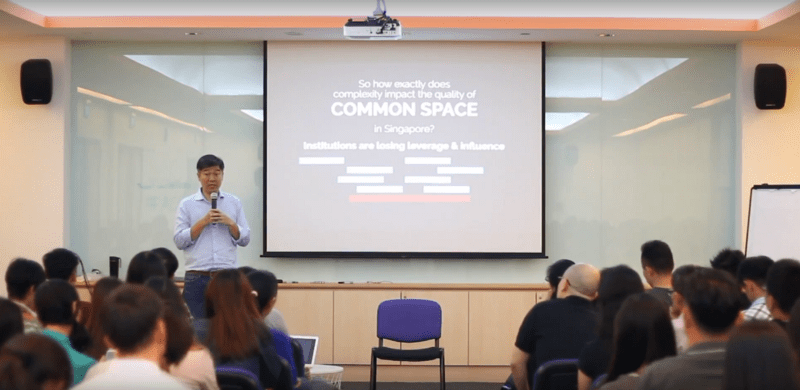
Tong Yee suggested that the complexity of trust means that it cannot be handled top down.
He believes the work of increasing levels of trust in Singapore starts by increasing our ability to find common space on an individual to individual level through personal conversations.
He raised the example of Australia, where the ratio of social workers to families that needed help was one to 82, with each family having complex problems of their own.
As social workers starting burning out and crumbling under their heavy case load, The Australian Centre for Social Innovation (TASCI) decided to try a new approach.
Amidst heavy resistance from the council of social workers, TASCI successfully convinced the government to adopt a peer to peer model. In this new model, social workers would still work with troubled families but once that family was turned around, members of that family would go on to help another family struggling with similar problems (e.g. alcoholism).
“TASCI trusted the families to have empathy and an intimate understanding of the problem that social workers could not possibly have,” said Tong Yee. In this model, the social worker became a facilitator, helping to find good matches between families, rather than a helper.
This eventually led to a 570% increase in the number of cases that exited the social welfare system. No mean feat indeed.
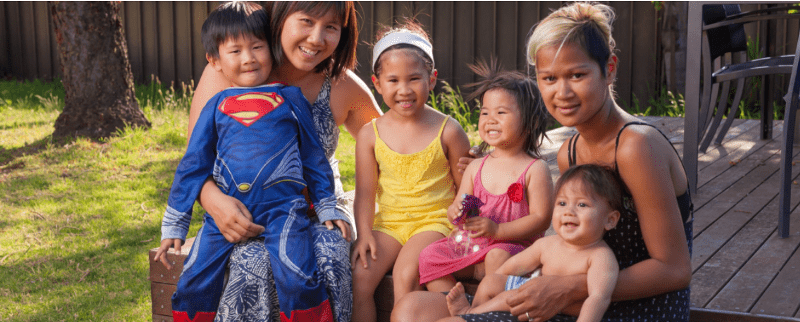
Believing that Singapore is going to go through a perfect storm of tensions, with our ageing crisis, disruptive technology and others, Tong Yee and The Thought Collective’s mission is to increase peer to peer competencies over the next 15 years.
“If we wait for social services or the government to step in, it’s going to be too slow. My understanding is that peer to peer is the way to go,” he shared.
After all, as Frederic Laloux, author of the bestselling book Reinventing Organisations says:
Trust makes ordinary people do extraordinary things.
